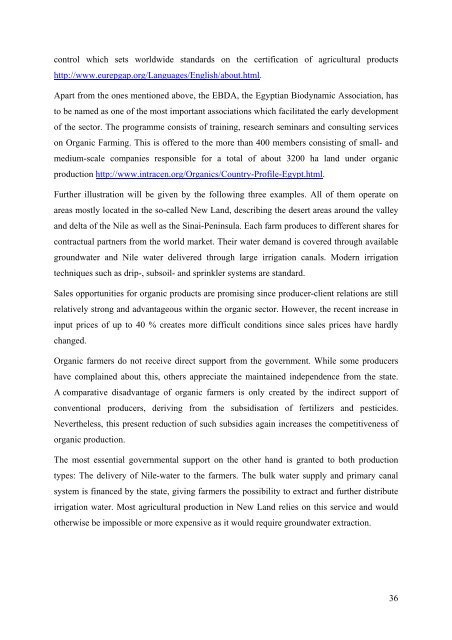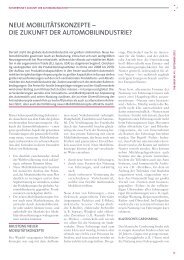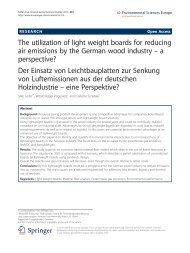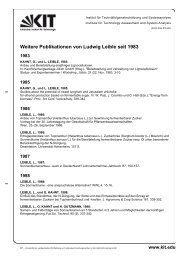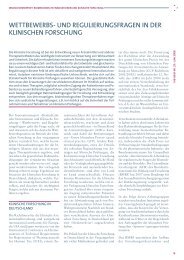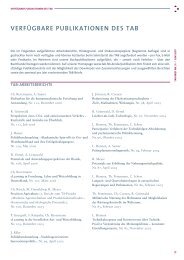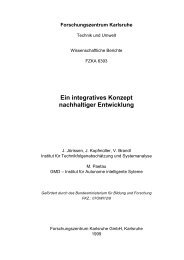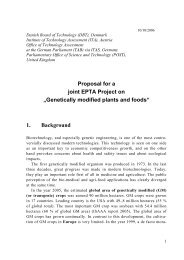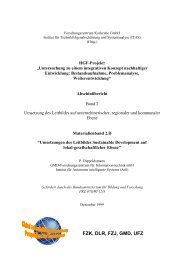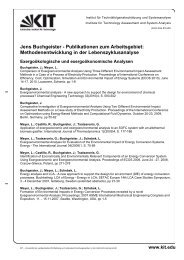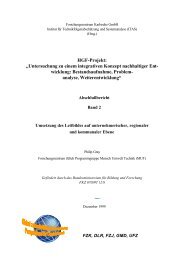Annex 4: Case study âOrganic Farmingâ - ITAS
Annex 4: Case study âOrganic Farmingâ - ITAS
Annex 4: Case study âOrganic Farmingâ - ITAS
You also want an ePaper? Increase the reach of your titles
YUMPU automatically turns print PDFs into web optimized ePapers that Google loves.
control which sets worldwide standards on the certification of agricultural products<br />
http://www.eurepgap.org/Languages/English/about.html.<br />
Apart from the ones mentioned above, the EBDA, the Egyptian Biodynamic Association, has<br />
to be named as one of the most important associations which facilitated the early development<br />
of the sector. The programme consists of training, research seminars and consulting services<br />
on Organic Farming. This is offered to the more than 400 members consisting of small- and<br />
medium-scale companies responsible for a total of about 3200 ha land under organic<br />
production http://www.intracen.org/Organics/Country-Profile-Egypt.html.<br />
Further illustration will be given by the following three examples. All of them operate on<br />
areas mostly located in the so-called New Land, describing the desert areas around the valley<br />
and delta of the Nile as well as the Sinai-Peninsula. Each farm produces to different shares for<br />
contractual partners from the world market. Their water demand is covered through available<br />
groundwater and Nile water delivered through large irrigation canals. Modern irrigation<br />
techniques such as drip-, subsoil- and sprinkler systems are standard.<br />
Sales opportunities for organic products are promising since producer-client relations are still<br />
relatively strong and advantageous within the organic sector. However, the recent increase in<br />
input prices of up to 40 % creates more difficult conditions since sales prices have hardly<br />
changed.<br />
Organic farmers do not receive direct support from the government. While some producers<br />
have complained about this, others appreciate the maintained independence from the state.<br />
A comparative disadvantage of organic farmers is only created by the indirect support of<br />
conventional producers, deriving from the subsidisation of fertilizers and pesticides.<br />
Nevertheless, this present reduction of such subsidies again increases the competitiveness of<br />
organic production.<br />
The most essential governmental support on the other hand is granted to both production<br />
types: The delivery of Nile-water to the farmers. The bulk water supply and primary canal<br />
system is financed by the state, giving farmers the possibility to extract and further distribute<br />
irrigation water. Most agricultural production in New Land relies on this service and would<br />
otherwise be impossible or more expensive as it would require groundwater extraction.<br />
36


